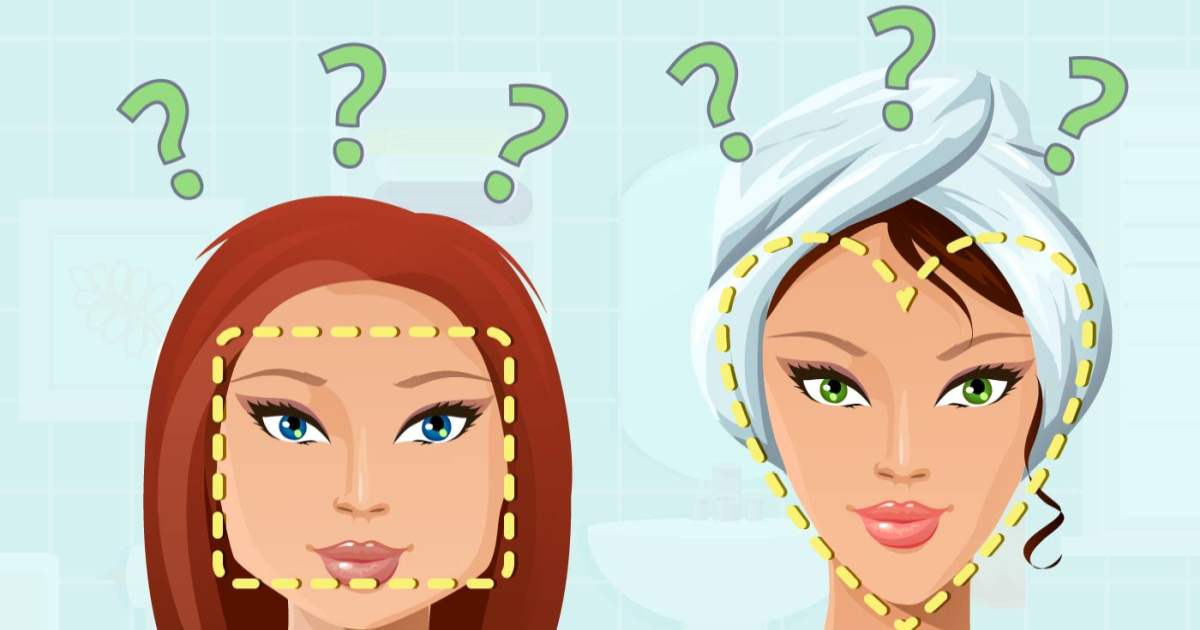Guess Nationality By Face: The Fascinating Art Of Reading Faces
Have you ever looked at someone and wondered, "Where are they from?" It's a common curiosity that many of us experience on a daily basis. Guessing someone's nationality by their face has become an intriguing topic that combines psychology, anthropology, and even a bit of fun. Whether you're at a party, scrolling through social media, or simply observing people on the street, the ability to guess nationality by face can be both entertaining and educational.
But let's be honest, it's not just about making guesses for fun. There's a whole science behind why we perceive certain facial features as being tied to specific nationalities. Our brains are wired to recognize patterns, and over time, we've developed an unconscious ability to associate certain physical traits with geographical origins. This isn't always accurate, but it's certainly fascinating.
In this article, we'll dive deep into the world of guessing nationality by face. We'll explore the science behind it, uncover common misconceptions, and even provide some tips to improve your skills. So buckle up, because we're about to embark on a journey that will change the way you see faces forever.
Read also:Thor Actor The Reallife Warriors Behind The God Of Thunder
Here's a quick roadmap of what we'll cover:
- Introduction to Guessing Nationality by Face
- The Science Behind Facial Recognition
- Common Features and Their Nationality Associations
- How Culture Shapes Facial Perception
- Challenges in Guessing Nationality
- Tools and Techniques to Improve Your Skills
- Real-Life Examples and Case Studies
- Misconceptions About Guessing Nationality
- Why This Skill Matters in Today's World
- Final Thoughts and Call to Action
Understanding the Basics of Guessing Nationality by Face
What Makes a Face Unique?
Every face is like a fingerprint – unique and full of stories. When we talk about guessing nationality by face, we're essentially talking about recognizing patterns in facial features. Things like the shape of the eyes, nose, jawline, and even skin tone can give us clues about someone's heritage. But here's the thing – it's not always as straightforward as it seems.
For example, people from East Asia often have almond-shaped eyes, while those from Mediterranean regions might have darker, more prominent eyebrows. These are generalizations, of course, but they're based on real genetic differences that have evolved over thousands of years. The key is to understand that these traits are just pieces of a much larger puzzle.
The Science Behind Facial Recognition
How Our Brains Process Faces
Our brains are wired to recognize faces faster than almost anything else. This is because facial recognition is crucial for survival. Back in the day, our ancestors needed to quickly identify friends from foes, and that ability has stuck with us. When you see a face, your brain processes it in milliseconds, looking for familiar patterns and associations.
But here's where it gets interesting – your brain doesn't just rely on physical features. It also takes into account context, culture, and even personal experiences. For instance, if you grew up in a multicultural environment, you might be better at guessing nationalities because you've been exposed to a wider variety of faces.
Common Features and Their Nationality Associations
Breaking Down the Traits
Let's talk about some of the most common facial features and how they're associated with different nationalities. Keep in mind that these are generalizations, and exceptions abound. But they can still serve as a starting point for your guessing game.
Read also:Socially Keeda Subhashree The Buzzing Queen Of Digital Influence
- Eyes: People from East Asia often have almond-shaped eyes, while those from Northern Europe tend to have rounder eyes.
- Nose: A high, narrow nose might indicate European ancestry, while a flatter, wider nose could suggest African or Indigenous heritage.
- Skin Tone: Skin color varies widely across the globe, but it's often tied to geographic location and climate.
- Jawline: A strong, defined jawline is more common in certain European populations, while a softer jawline might be found in other regions.
How Culture Shapes Facial Perception
The Role of Media and Stereotypes
Culture plays a massive role in how we perceive faces. Movies, TV shows, and social media all influence our ideas about what people from certain countries look like. For instance, if you've only ever seen Hollywood actors portraying "typical" Americans, you might have a skewed perception of what an American face really looks like.
It's important to remember that stereotypes can be misleading. Just because someone looks a certain way doesn't mean they fit neatly into a specific cultural box. People are complex, and their identities are shaped by a multitude of factors beyond just their physical appearance.
Challenges in Guessing Nationality
Why It's Not Always Easy
Guessing nationality by face isn't as simple as it seems. There are several challenges that make it a tricky endeavor. First, globalization has led to a blending of cultures and genetics, making it harder to pinpoint someone's exact origins. Second, people often have mixed heritage, which means their facial features might not fit neatly into any one category.
Additionally, our own biases and assumptions can cloud our judgment. We might unconsciously rely on stereotypes or incomplete information, leading us to make incorrect guesses. The key is to approach this skill with an open mind and a willingness to learn.
Tools and Techniques to Improve Your Skills
Practicing Your Guessing Game
So, how can you get better at guessing nationality by face? Here are a few tips:
- Study Geography: Learn about the physical and cultural characteristics of different regions. This will give you a broader understanding of how facial features vary across the globe.
- Watch Diverse Media: Expose yourself to films, TV shows, and documentaries from different countries. This will help you recognize a wider range of faces.
- Practice Observation: Pay attention to the details when you meet new people. Look for subtle differences in facial structure and skin tone.
- Be Humble: Accept that you won't always be right, and that's okay. The goal is to learn and appreciate the diversity of human faces.
Real-Life Examples and Case Studies
Stories from Around the World
Let's look at a few real-life examples of how people have used their skills in guessing nationality by face:
- Case 1: A traveler in Southeast Asia noticed that many locals had similar facial features, despite coming from different countries. This sparked an interest in the region's shared genetic history.
- Case 2: A casting director for a Hollywood film used her knowledge of facial features to accurately cast actors from specific regions, enhancing the authenticity of the production.
- Case 3: A college student studying anthropology conducted a project where she asked participants to guess each other's nationalities based on their faces. The results were fascinating and highlighted the complexities of this skill.
Misconceptions About Guessing Nationality
Separating Fact from Fiction
There are several misconceptions about guessing nationality by face that need to be addressed:
- Myth 1: All people from the same country look the same. This couldn't be further from the truth. Even within a single country, there can be vast differences in appearance due to regional variations and mixed heritage.
- Myth 2: Skin color is the most important factor. While skin tone can provide clues, it's only one piece of the puzzle. Other features like eye shape and nose structure are equally important.
- Myth 3: You can always guess someone's nationality correctly. Unfortunately, this isn't always possible. People's appearances can be influenced by a variety of factors, including personal choices like hairstyle and makeup.
Why This Skill Matters in Today's World
Celebrating Diversity
In a world that's becoming increasingly interconnected, the ability to guess nationality by face can be a powerful tool for understanding and appreciating diversity. It encourages us to look beyond surface-level differences and recognize the rich tapestry of human experiences that make our planet so fascinating.
Moreover, this skill can help break down barriers and foster empathy. When we take the time to learn about other cultures and appreciate their unique characteristics, we create a more inclusive and harmonious global community.
Final Thoughts and Call to Action
Guessing nationality by face is more than just a fun party trick – it's a window into the complexities of human identity. By honing this skill, we can deepen our understanding of the world and the people who inhabit it. So the next time you see someone and wonder where they're from, take a moment to appreciate the story their face tells.
Now it's your turn! Try guessing the nationalities of the people around you, and share your experiences in the comments below. Who knows? You might just discover something new about yourself in the process.
Article Recommendations


